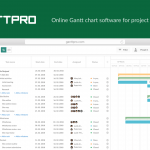Usenet – The Benefits of the WWW’s older Brother
Believe it or not, the World Wide Web was late to the party. In 1989, Sir Timothy John Berners-Lee invented the WWW, to which he wrote the first web browser a year later. The WWW uses a series of stand alone servers, in which people receive web pages using HTTP protocol.
An entire decade before this invention, Usenet was born. Usenet is a network of servers which spread messages in, and they connect to each other over the internet using TCP/IP and send such messages using NNTP protocol.
It sounds a little like the WWW was invented after to succeed Usenet, and has far greater potential. Of course WWW concerns itself with the Web – webpages – and not the entire internet as a whole. In today’s society, privacy is becoming an increase cause for concern, and the web leaves us exposed.

The benefits of Usenet
As you may have gathered, the World Wide Web is somewhat of a centralised way to surf the internet. Usenet however is an independent network – a decentralized structure. It can’t replace the internet entirely, but it can be a great alternative in which you can access newsgroups anonymously.
A huge privacy violation when using WWW is derived from advertising. In search for personalized marketing, you’re giving up your data in return for bespoke adverts (a dangerous idea in and of itself). Usenet doesn’t have adverts though. Usenet doesn’t have official access in this part of the internet.
The Usenet model essentially stores data in a few server farms which are globally distributed. In a time where you’re beginning to feel although you cannot have a single private conversation, because either Facebook stores those messages or your Mobile microphone is always on, Usenet is an opportunity to regain back some of your power.
How to use Usenet
You can test Usenet access for free with UseNeXT, and find out more information on Bestusenetprovider.net. To use UseNeXT doesn’t require much technical knowledge, and it actually provides a convenient user interface. You can search, a little bit like Google, for newsgroups. If one is found, you’re given access to it. You can also download files at high transfer rates, but they must be (automatically) selected by UseNeXT and added to a transfer list.
UseNeXT is one of the very few ways we can surf the ‘internet’ anonymously. It’s not just privacy that you gain, but security too. Data is not available indefinitely with Usenet. It is held for 3,400 days with UseNeXT, which is preferable to many other providers, which accumulates up to around 30,000 terabytes of material.
It uses 256-bit SSL encryption to ensure that 200,000 uncensored newsgroups can be viewed anonymously. This makes it hugely popular politically, because of course, censorship is a huge problem in current media (particularly with Twitter and Youtube). Mainstream posting websites, even Reddit for example, are constantly accused of bias and censorship.
Usenet may not be the most accessible way to surf. It may not replace the World Wide Web. But it doesn’t have to. A lack of privacy and having censorship doesn’t mean the WWW is completely useless, but it’s important to know where to turn to when we’re in need of a completely private and secure place to communicate.















